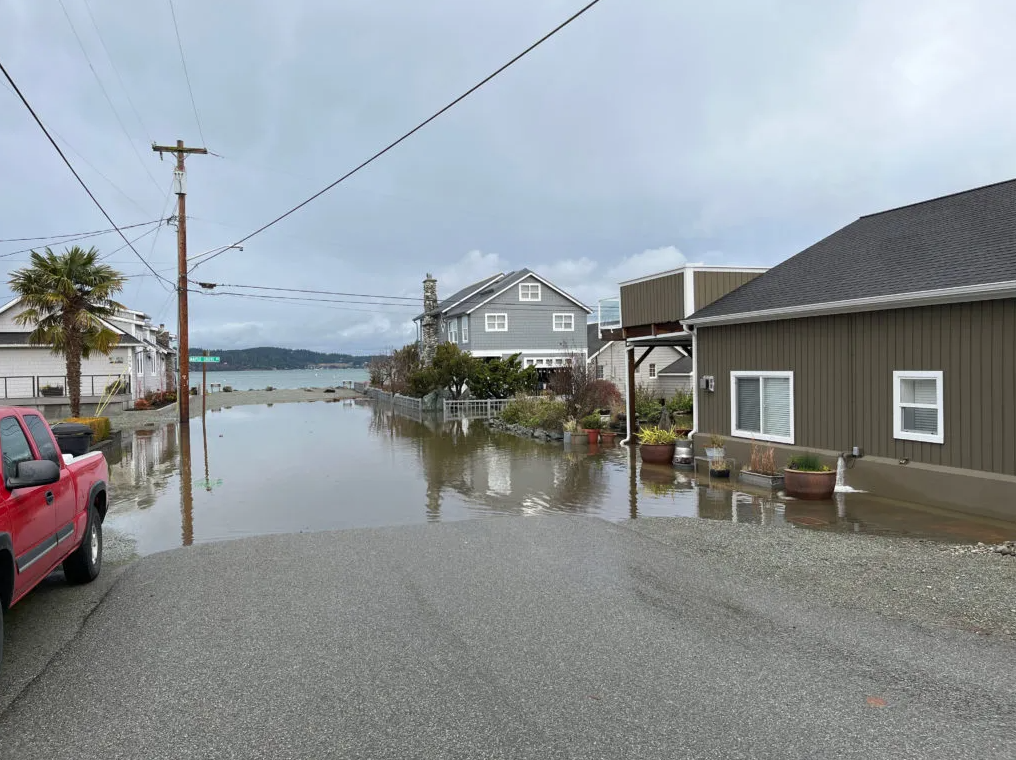
Assessing and ranking the vulnerability of coastal habitats and infrastructure to sea level rise can provide insights to support planning and projects that can reduce those vulnerabilities. A team of researchers from NCCOS, Washington Sea Grant, and Coastal Geologic Services recently published a framework for calculating a sea level rise vulnerability score in Sustainability, at scales appropriate for coastal decision-making. In the case of this project, a unique vulnerability index was calculated for every parcel within a sea level rise risk zone identified for Puget Sound.
Applied to 111,239 parcels in Puget Sound, Washington, the research team incorporated an assessment of coastal erosion, as well as coastal flooding, in an evaluation of the exposure of each parcel. Impacts to habitats were quantified alongside impacts to existing infrastructure. The results suggest that sea level rise vulnerability in Puget Sound is widely distributed, but the overall distribution of scores is heavily skewed, suggesting that the combination of topography, the distribution of habitats, and the distribution of built environment elements (such as buildings and roads) lead to a concentration of vulnerability in a relatively small number of parcels in Puget Sound. Therefore, adaptation actions directed specifically to these parcels could yield significant reductions in vulnerability.
The results were also coupled with a demographic analysis index, developed in tandem with the framework, which provides additional insight regarding the people and places that may be predisposed to adverse impacts from sea level rise-related hazards.
This collaborative study resulted from NCCOS’ 2021-2022 Puget Sound Vulnerability Assessment, and highlights the importance of interdisciplinary research teams and collaborations between NCCOS scientists and project partners. For more information on the programmatic continuation of this body of research, please visit our Community Risk Assessment webpage.
Citation: I. Miller, A. Maverick, J. Johannessen, C. Fleming and S. Regan, (2022). A Data-Driven Approach for Assessing Sea Level Rise Vulnerability Applied to Puget Sound, Washington State, USA. Sustainability, 15(6). https://doi.org/10.3390/su15065401
